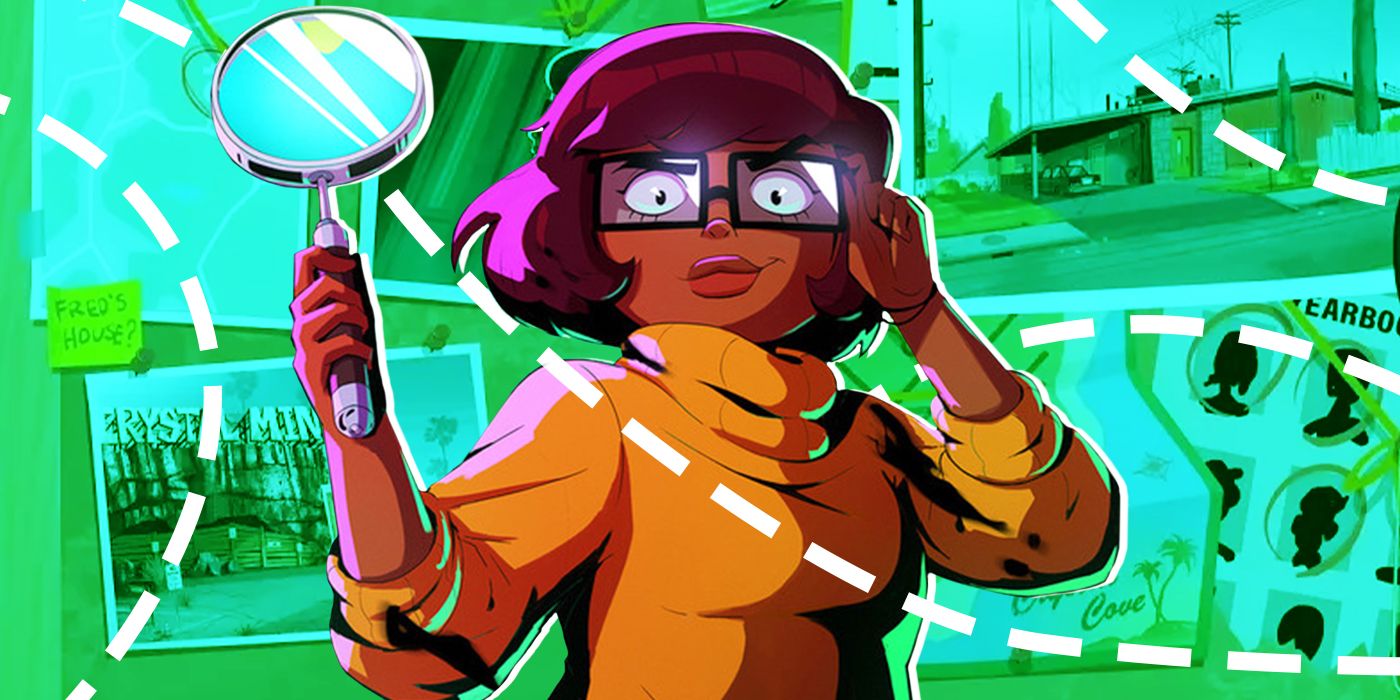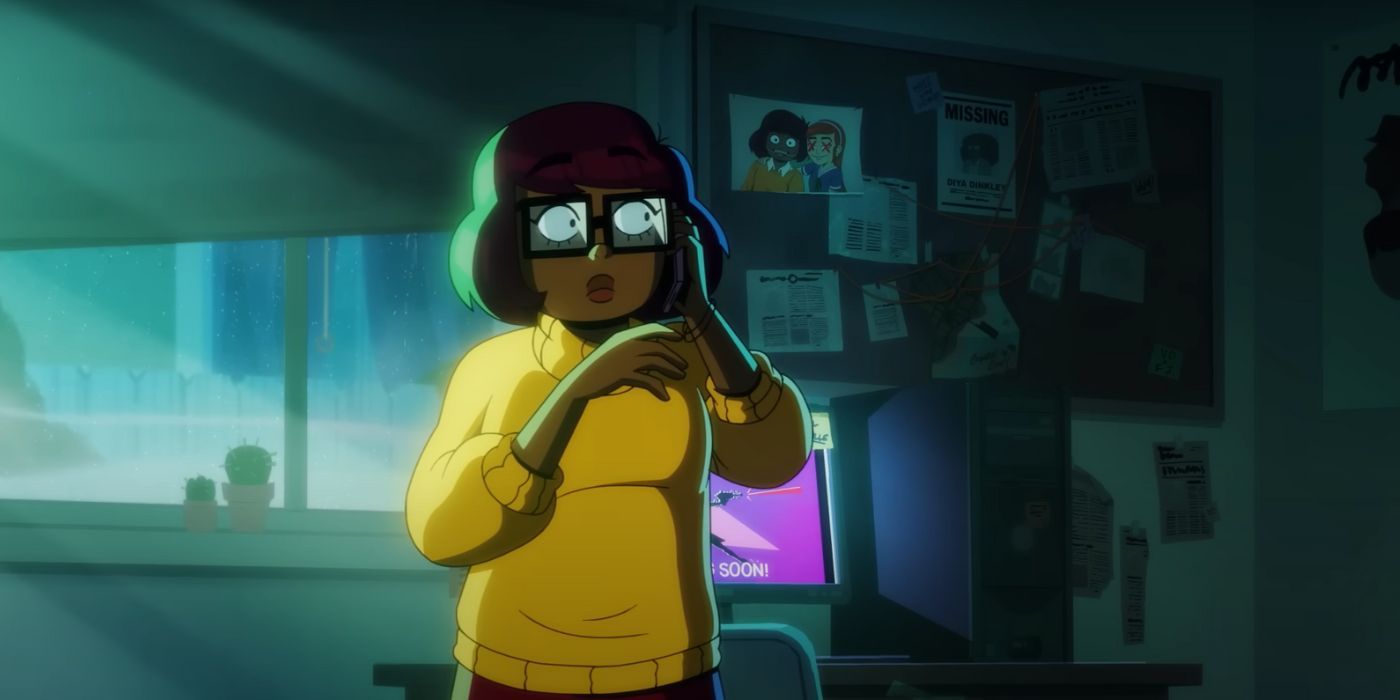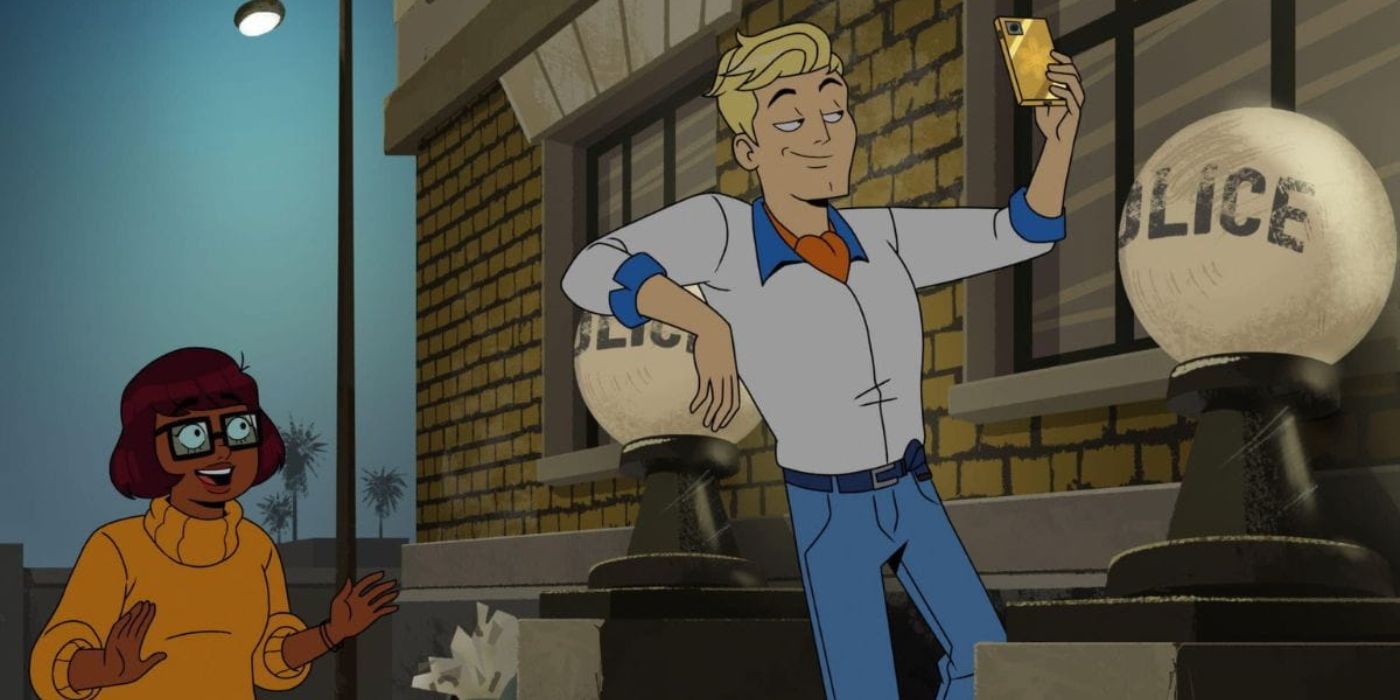Velma is the untold story of Mystery Inc.'s true founder Velma Dinkley (Mindy Kaling), as she solves mysteries in Crystal Cove, including the "disappearance" of her mother. Velma's origin story is completely self-aware and just meta enough to make it laugh-out-loud funny. Velma manages to be both full of references to its origins and staples of the genre, as well as deliver an intriguing mystery, with all the twists and turns and spookiness you could ever hope for.
Velma's Meta Humor Is On Full Display (Literally) In the Pilot
Episode 1 of Velma begins with the characters calling out the gratuitous sex and nudity that is often found in pilot episodes, and then not carried through to the rest of the show — used simply as bait to draw viewers in and keep them watching. They say all of this while they are soaped up, naked in a group shower, and just seconds after we see two cockroaches getting it on. They further discuss whether sex is necessary as a hook in an "overcrowded market" full of secret perverts or if it is enough to have good storytelling. Velma references three shows specifically that use sex/ and or nudity in pilot episodes: First, The Marvelous Mrs. Maisel, in which Miriam (Rachel Brosnahan) gets drunk and does a stand-up comedy set where she shows her breasts to the crowd; next, House of Lies, which opens with Marty Kaan (Don Cheadle) and his ex-wife Monica (Dawn Olivieri) lying totally naked on a bed; and finally, the Riverdale pilot where Betty (Lili Reinhart) and Veronica (Camila Mendes) try to win a spot on the cheerleading squad with a "faux-lesbian" kiss. The pilot episode of Velma, in a clear meta gesture, gives us a steamy shower full of naked girls and a naked fistfight, but not as senseless pandering to the lowest common denominator. Instead, it is a conscious creative choice — and, coupled with the references they are mimicking, is bloody funny.
Velma's characters follow that up by directly addressing the color-blind casting as a not-so-subtle middle finger to racist critics. While originally the Scooby-Doo gang was all white, (it was the sixties after all), Velma shows a much more diverse group of on-screen characters, also voiced by a diverse cast of voice actors.
We then get a bunch of "if this were a show" jokes that let the audience know the writers of Velma know all the tropes, and they're here to subvert them. When Daphne (Constance Wu) and Velma are inches apart in anger, we get the line, "If this was a show, it'd be super hot if you two kissed," which is Velma disparaging how often queer-baiting is used as a hook on television. Velma replies, "If this was a show, you'd be killed off for being horny," pointing out the terrible trope in the mystery and horror genres where a woman with even a modicum of sexuality is punished by being killed almost immediately (usually while topless). All of this happens in the first three minutes of the show, and it is comedy genius. Viewers can now feel confident that these writers know exactly what they are doing, and they can just relax and enjoy everything that is about to unfold.
'Velma' Thrives on Calling Out Tired Tropes
Next up, Velma is being questioned in an interrogation room regarding the murder of Brenda (Shay Mitchell) where she expects to find a "handsome detective" whom she can annoy with her cool demeanor. Instead, she finds herself questioned by Daphne's moms, Linda (Wanda Sykes) and Donna Blake (Jane Lynch). Velma then makes an as-yet unexplained mysterious comment — "I don't solve mysteries. Not anymore" — then stares off into space while music reminiscent of The X-Files theme song plays. This is a tongue-in-cheek version of a technique used in a lot of mystery shows to build suspense. In Velma, however, the writers use it to point out how ridiculous it often looks by having the detectives look on confused.
At Brenda's funeral, Velma looks at how often women are blamed for violence against them, even their own deaths (both in real-life and in the horror genre) by calling her "the rare slut that did not deserve to be murdered." Velma also subverts the horror trope of a character deciding to investigate creepy events, like being swarmed by cockroaches while the audience screams at them not to. Velma is no ordinary main character — she sees something gross, and immediately tries to bail.
After Velma tells Fred (Glenn Howerton) her backstory, he explains that he now feels emotionally hooked and understands the stakes of her journey. This is a call-out to exposition scenes in television and movies where writers have characters tell their histories to another character in order to fill in the audience. In a later scene, Velma and Norville a.k.a. Shaggy (Sam Richardson) discuss the Malt shop owner not being "a friendly Black man or a spicy meatball Italian," a reference to the conventional use of diverse characters as spiritual guides for the main characters in television and movies. They are not given any backstories or character traits of their own and exist only to provide "folksy wisdom."
When Velma's post-makeover scene is interrupted by someone calling "bullshit," it is a nod to almost every single teen movie or TV show where a nerdy character transforms their lives by getting a makeover. Velma expertly skips this long and predictable arc where the main character realizes they don't need to change who they are for other people. Then finally after Fred's takedown, Norville points out that the logic surrounding Velma's hallucinations feels a bit "muddy." This subtly refers to the common practice of convenient storytelling where logic is pushed aside for dramatic effect.
All of these meta moments fit seamlessly into Velma and never detract from the story of who is killing women and removing their brains. Velma recognizes that viewers are intelligent and more aware of movie and television tricks than ever before, and gives them a smart, comedy-heavy mystery they can easily enjoy.



